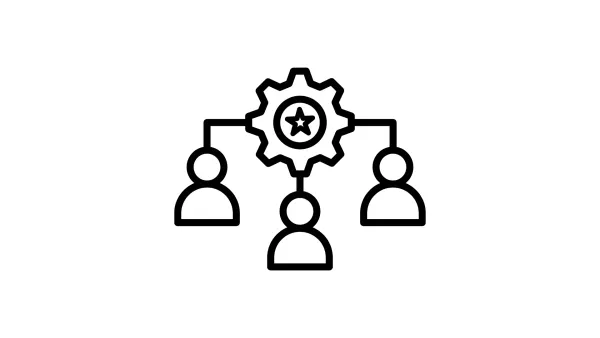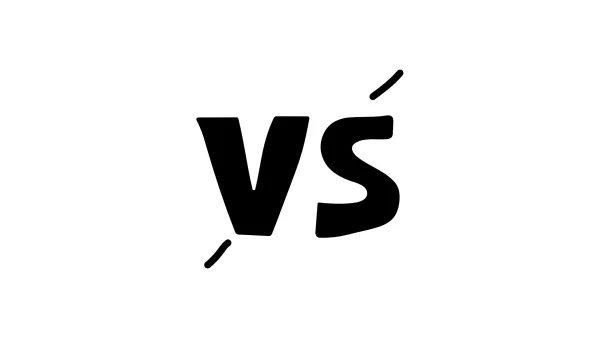Apache vs. Nginx vs. LiteSpeed: Which Web Server is Best for 2025?
Apache, Nginx, or LiteSpeed: Which web server should you choose in 2025? Explore their features, performance, and best use cases for high-traffic sites, e-commerce, and small businesses. Make an informed decision to boost speed, scalability, and reliability.

Table of Contents
- Introduction
- Apache: The Veteran of Web Servers
- Nginx: The Performance-Oriented Server
- LiteSpeed: The New Player with Speed
- Performance Comparison
- Ease of Configuration and Use
- Compatibility and Ecosystem
- Security Features
- Cost and Licensing
- Use Case Scenarios
- Future Prospects for Apache, Nginx, and LiteSpeed
- Conclusion
- FAQs
The web server you choose is the backbone of your online presence. Whether you’re hosting a small blog or managing a high-traffic e-commerce platform, your server can make or break performance, scalability, and security. Let’s dive into the features, strengths, and limitations of Apache, Nginx, and LiteSpeed to determine which one reigns supreme in 2025.
Introduction
Overview of the Three Popular Web Servers
- Apache: The trusted veteran powering millions of websites since the 1990s.
- Nginx: The performance-focused modern server designed to handle high concurrency.
- LiteSpeed: The speed-obsessed newcomer with built-in optimizations.
Importance of Choosing the Right Web Server
Your choice affects speed, scalability, security, and overall user experience. A poorly suited server can bottleneck performance or increase operational costs.
Apache: The Veteran of Web Servers
Key Features and Capabilities
- Modular Architecture: Supports a wide variety of extensions and customizations.
- .htaccess Files: Enables easy directory-level configuration.
Strengths of Apache
- Highly compatible with CMS platforms like WordPress and Drupal.
- Extensive community support and documentation.
- Flexible configuration for complex setups.
Limitations of Apache
- Struggles with high traffic and concurrent connections compared to newer servers.
- Resource-intensive for static content delivery.
Nginx: The Performance-Oriented Server
Key Features and Capabilities
- Event-Driven Architecture: Handles thousands of concurrent connections efficiently.
- Reverse Proxy Functionality: Ideal for load balancing and caching.
Strengths of Nginx
- Exceptional for static content and high-traffic websites.
- Low memory usage and faster response times.
- Integrates well into modern DevOps workflows with Kubernetes and Docker.
Limitations of Nginx
- Lacks built-in directory-level configuration like
.htaccess. - Steeper learning curve for beginners.
LiteSpeed: The New Player with Speed
Key Features and Capabilities
- HTTP/3 Support: Ahead of the curve with modern protocol integration.
- Built-In Caching: Turbocharges dynamic content delivery.
Strengths of LiteSpeed
- Out-of-the-box optimization for WordPress and other CMS platforms.
- Easy migration from Apache with
.htaccesscompatibility. - Excellent performance under load with minimal resource usage.
Limitations of LiteSpeed
- Licensing fees make it less appealing for small projects.
- Smaller community compared to Apache and Nginx.
Performance Comparison
Speed and Efficiency: Static vs. Dynamic Content
- Nginx excels with static files.
- LiteSpeed shines with dynamic content, thanks to built-in caching.
- Apache lags slightly but is versatile with proper tuning.
Handling High Traffic and Concurrent Connections
- Nginx leads in high-concurrency environments.
- LiteSpeed is close behind, offering superior speed for dynamic sites.
- Apache is reliable but less efficient under heavy load.
Resource Usage and Scalability
- Nginx is lightweight and scales effortlessly.
- LiteSpeed balances resource efficiency with performance.
- Apache consumes more resources but remains robust for small to medium setups.
Ease of Configuration and Use
- Apache: .htaccess files offer unparalleled flexibility but can lead to inefficiencies.
- Nginx: Requires centralized configurations, which are efficient but harder for beginners.
- LiteSpeed: Combines Apache’s ease of use with Nginx’s efficiency.
Compatibility and Ecosystem
- Apache: Works seamlessly with CMS platforms and a wide range of modules.
- Nginx: A favorite in DevOps for its reverse proxy and load-balancing capabilities.
- LiteSpeed: Excellent for hosting providers with easy integration into control panels like cPanel.
Security Features
- Apache: Dependable with mod_security and SSL/TLS support.
- Nginx: Strong DDoS mitigation and secure proxying.
- LiteSpeed: Combines robust SSL/TLS handling with advanced built-in security.
Cost and Licensing
- Apache: Free and open-source.
- Nginx: Free with paid enterprise options.
- LiteSpeed: Licensing fees but strong value for performance-focused projects.
Use Case Scenarios
- High-Traffic Websites: Nginx for static-heavy content; LiteSpeed for dynamic-heavy sites.
- E-Commerce Platforms: LiteSpeed for speed and built-in caching.
- Small Businesses and Startups: Apache for simplicity and cost-effectiveness.
Future Prospects for Apache, Nginx, and LiteSpeed
Trends and Innovations Expected in 2025
- Growing adoption of HTTP/3 and QUIC will benefit LiteSpeed.
- Apache will remain relevant for traditional setups.
- Nginx will dominate in modern cloud-native environments.
Sustainability and Community Support
Apache and Nginx enjoy strong open-source communities, while LiteSpeed benefits from active commercial development.
Conclusion
Each server shines in different areas:
- Apache is a reliable all-rounder.
- Nginx is the go-to for high-performance static sites and scalable setups.
- LiteSpeed offers unmatched speed for dynamic content and CMS platforms.
Choose based on your specific needs, whether it’s speed, scalability, or compatibility. In 2025, your server should match your project’s unique demands for optimal performance and reliability.
FAQs
What are the main differences between Apache, Nginx, and LiteSpeed?
Apache is highly flexible and modular, Nginx excels in performance and scalability, and LiteSpeed is optimized for speed and dynamic content.
Which web server is best for high-traffic websites?
Nginx is ideal for high-traffic static websites, while LiteSpeed is better for dynamic content-heavy sites like e-commerce platforms.
Is LiteSpeed worth the licensing cost?
Yes, if you need top-tier performance, built-in caching, and HTTP/3 support, especially for dynamic or CMS-driven sites like WordPress.
Can Nginx handle dynamic content as well as static content?
Nginx handles dynamic content efficiently when used as a reverse proxy in combination with application servers.
Is Apache still relevant in 2025?
Absolutely! Apache is highly compatible with CMS platforms, offers excellent flexibility, and has a large user base and community support.



